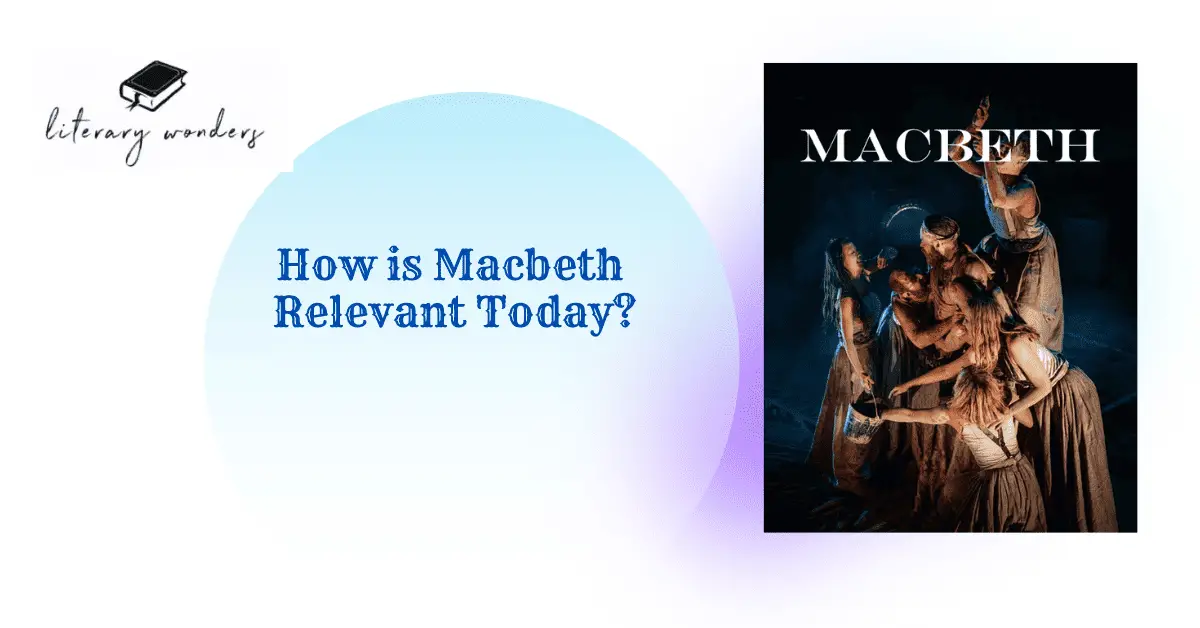An Overview of Macbeth by William Shakespeare
Macbeth, a forever green tale of fate and tragedy by William Shakespeare narrates the story of Macbeth, a gallant Scottish general. He meets three witches after a battle, and they foretell that he will rule as king. With the support of his spouse, Lady Macbeth, he resolves to fulfil the prophecy by assassinating King Duncan, who is lodging at their castle.
After ascending to the throne, Macbeth is plagued with paranoia and guilt. He grows more and more brutal, ordering the execution of anybody whom he perceives as posing a threat to his position of authority, including Fleance, the son of his buddy Banquo.
Macbeth’s wife experiences guilt and insanity as his rule grows increasingly oppressive. A gang of Scottish nobility intends to remove him in the interim. When Macbeth returns to the witches, they offer him more prophecies that are vague and perplexing yet also feel comforting. At some point, Macbeth encounters a rebellion headed by Macduff, another nobleman, and Malcolm, the son of Duncan.
Another of the witches’ prophecies is realized when Macbeth discovers in a pivotal fight that Macduff was not “born of woman” in the conventional sense. Malcolm ascends to the throne following Macduff’s murder of Macbeth. Malcolm promises to bring peace back to Scotland as the play comes to a close.
How is Macbeth relevant today?
Although the play was written centuries ago, Macbeth still holds relevance in today’s world. The universal themes of the play like ambition, power, guilt, and the corrupting influence of unbridled appetites are highly relevant in today’s world, even if the play is set in a medieval world of monarchs and witches. The relevance of Macbeth is still glaringly obvious as we make our way through the complexity of modern life; it provides insightful perspectives on politics, human nature, and the quest of power.
Human Psyche and Macbeth
The examination of the human psyche in Macbeth is among the most remarkable features of its ongoing relevance. A cautionary tale about the perils of uncontrolled ambition is told by the character of Macbeth. Motivated by the supernatural powers, his unwavering ambition for power reflects the all-too-common struggle for domination and success in contemporary society. A powerful warning of the moral and ethical ramifications of unbridled ambition, Macbeth’s slide toward despotism occurs in a world fixated on success and acclaim.
World’s Power Dynamics and Macbeth
Macbeth’s portrayal of political intrigue and the dynamics of power remains as pertinent today as it was during Shakespeare’s time. The play offers a stark depiction of the corrupting influence of power and the lengths to which individuals will go to attain and maintain it.
In an era marked by political turmoil and shifting power dynamics, the themes of manipulation, betrayal, and the erosion of moral values depicted in Macbeth resonate with unsettling clarity. From corporate boardrooms to the highest echelons of government, the play’s portrayal of ambition and treachery serves as a mirror to contemporary politics, prompting audiences to question the integrity of those in positions of authority.
Depiction of Human Nature in Macbeth
Macbeth’s examination of guilt and conscience resonates strongly in contemporary society, as people struggle to understand the ramifications of their choices in a globalized society. A powerful reminder of the psychological cost of unbridled ambition and moral compromise is provided by Macbeth’s journey into madness and the haunting shadow of Lady Macbeth’s guilt-ridden conscience.
With moral relativism and eroding ethical limits defining the times, Macbeth’s examination of guilt and salvation pushes viewers to face hard realities about humanity and the frailty of the human conscience.
Depiction of Gender Roles
In the ever-changing social context of today, Macbeth’s depiction of gender roles and the complexity of masculinity is still pertinent. By her ambition and cunning, Lady Macbeth confronts the patriarchal power structures of Shakespeare’s day and goes against conventional gender stereotypes. Lady Macbeth’s declaration of agency and ambition serves as a potent emblem of female strength in an era defined by constant discussions about gender equality and representation. It resonates with modern audiences working toward social justice and gender equity.
Dominance of Supernatural Elements in Macbeth
Furthermore, Macbeth’s supernatural undertones highlight how people have always been fascinated by the mysterious and the unexplainable aspects of human experience. The haunting images that plague Macbeth and the witches’ prophecies are powerful symbols of fate and destiny that force viewers to consider the boundaries of human understanding and the mysteries of existence. Macbeth’s investigation of the paranormal serves as a reminder of the enduring appeal of the mystical and the enduring mysteries that lay outside the scope of human understanding in an era characterized by scientific achievement and technological advancement.
Conclusion
To Conclude, Macbeth’s enduring significance stems from its in-depth examination of the intricacies inherent in the human condition. Macbeth’s representation of ambition and power, together with its exploration of guilt, gender, and the supernatural, have left a lasting impression on audiences across time, providing enduring insights into the nature of humanity.
The themes and characters of Macbeth parallel our own lives as we traverse the difficulties of the modern world, forcing us to face difficult truths about both our own selves and the society we live in. Macbeth is a timeless classic that reminds us of the continuing force of Shakespeare’s insight into the human soul in a world dominated by uncertainty and change.
Suggested Readings

